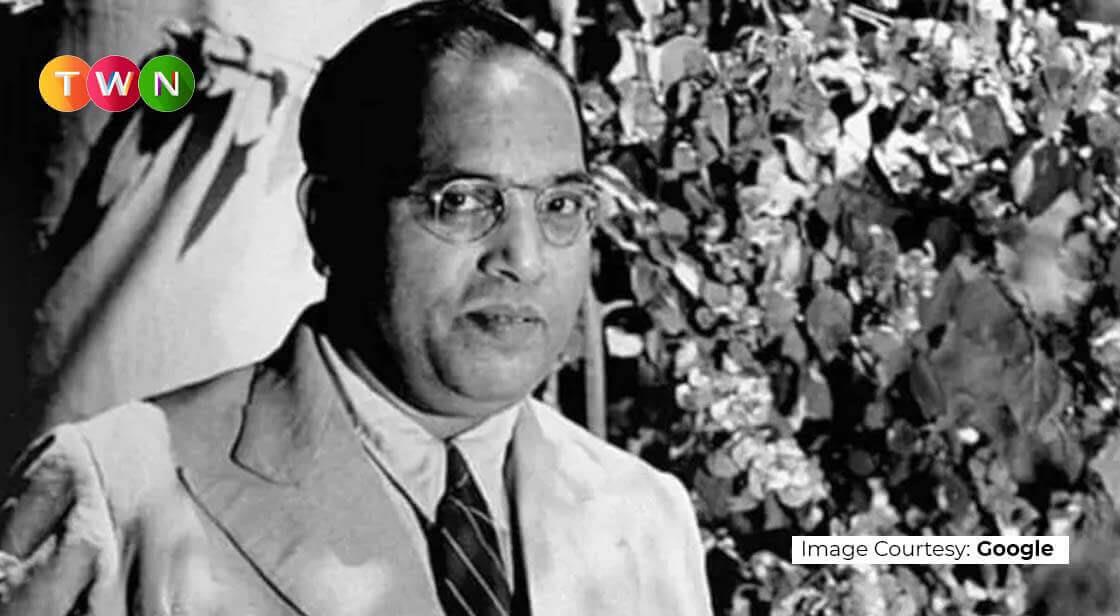
Dr. Bheem Rao Ambedkar, the father of the Indian Constitution and the man responsible for the abolition of untouchability in India. He was completely opposed to the cast system and desired to create an India in which everyone was equal and had equal opportunities in all aspects of society. Today, on the anniversary of his birth, let us bow down and honour him for everything he did to restore India's greatness after years of British rule. I doubt that there is anyone out there who is unaware of this great personality and his deeds, but for those who are unaware, we will shed some light on the life of Bheem Rao Ambedkar and why he is celebrated so much in India.
Dr. B. R. Amedkar Jayanti 2022
Dr. B. R. Ambedkar, also known as Baba sahib Ambedkar, was an economist, politician, father of the Indian Constitution, and social reformer who fought for the rights of Dalits (untouchables) in India; however, despite government efforts, Dalits are still considered untouchable in some parts of the country. Ambedkar was also a campaigner for women's rights and labour laws.
He was Independent India's first Law and Justice Minister. His contribution to the establishment of the Republic of India was enormous; thus, every year on April 14th, his birthday is celebrated as Ambedkar Jayanti to honour all of the contributions and sacrifices he made for Mother India.
Ambedkar's Early Life and Contributions
Ambedkar was a brilliant student and economics and law guru. He received his doctorate in Economics from both Columbia University and the London School of Economics. He used his strong understanding of economics to liberate India from archaic beliefs and ideas. He was opposed to the idea of creating separate electorates for Dalits and advocated for equal rights for all. He founded the Bahishkrit Hitakarini Sabha to promote education among "social outcasts," or non-Brahmin classes of people. To write more about the oppressed classes, he introduced five diurnals: Mooknayak, Bahishkrit Bharat, Samta, Janata, and Prabuddha Bharat.
He was vehemently opposed to the British proposal for a separate electorate for the poor. Following lengthy discussions, Ambedkar signed a pact on behalf of the backward classes and Congress activist Madan Mohan Malaviya on behalf of the other Hindu communities. This pact, known as the Poona Pact, granted the deprived class 148 seats in the council, as opposed to the British Government's proposal of 71 seats. This oppressed class was later recognised in the Indian Constitution as "Scheduled Caste" and "Scheduled Tribe." Following the country's independence from British rule, Ambedkar was invited to become the first Law and Justice Minister, which he accepted. He was later appointed to draught India's first constitution, which he did, and thus the Indian Constitution was born.
Poona Pact
In the Communal Award, the British government announced the formation of a separate electorate for "Depressed Classes" in 1932. Mahatma Gandhi was adamantly opposed to a separate electorate for untouchables, claiming that such a plan would divide the Hindu community in the future. Gandhi demonstrated by refusing to eat while imprisoned in Poona's Yerwada Central Jail. Following the fast, congressional politicians and activists like Madan Mohan Malaviya and Palwankar Baloo met with Ambedkar and his supporters. The Poona Pact was signed on September 25, 1932, by Ambedkar (representing the depressed classes among Hindus) and Madan Mohan Malaviya (on behalf of the other Hindus).
The agreement provided reserved seats in the Provisional legislatures for the oppressed classes within the general electorate. The depressed class received 148 seats in the legislature as a result of the Poona Pact, rather than the 71 allocated in the Communal Award proposed earlier by the colonial government under Prime Minister Ramsay MacDonald. The term "Depressed Classes" was used in the text to refer to Untouchables or Dalits among Hindus, who were later referred to as Scheduled Castes and Scheduled Tribes under the India Act of 1935 and the Indian Constitution of 1950.
The Drafting Of the Indian Constitution
When India gained independence in 1947, the First Prime Minister of Independent India appointed Ambedkar as the Dominion of India's Law Minister, and two weeks later, he was appointed chairman of the constitution-drafting committee for the future republic of India. The Indian constitution guarantees and protects a wide range of civil independence for every citizen, including the freedom to practise one's preferred religion, the abolition of untouchability, and the prohibition of all forms of discrimination. Ambedkar fought for extensive economic and social rights for women and persuaded the assembly to implement a system of reservations of jobs, schools, and colleges for members of scheduled castes, scheduled tribes, and Other Backward Class, a system akin to equal opportunities. Through these measures, the founders of the Indian Constitution hoped to eliminate socioeconomic inequalities and a lack of opportunities for India's Dalit cast. The Constituent Assembly approved and adopted the Indian Constitution on November 26, 1949.
Conclusion
Dr. Bheem Rao Ambedkar's contribution cannot be overlooked. Despite some criticism from the general cast, who accuse him of favouritism, even they admire him for his social reforms and significant contribution to the formation of the Indian constitution. Today, on the occasion of his birth anniversary, let us remember this great man and how he transformed an Indian under British rule into the Republic of India.
Tags:
ambedkar jayanti, ambedkar jayanti 2022, world biggest jayanti, ambedkarimages
Read This Full ARTICLE, Click Here

Comments
Post a Comment